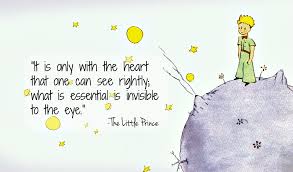This story sings, a happy ending in the making. Wait for it.
Take the story back as far as you need to go. Back to 1957 when a bug bit my brain and caused, among other nasty outcomes, damage to my optic nerves that confounds doctors.
Or to 1992, when I returned with my toddler son to Kansas City and put myself in the care of a joyful neurologist named Arthur Allen and a lively optometrist at Gerry Optical, Patrick Dennis.
Maybe only as far back as 2001, when Drs. Allen and Dennis started urging me to submit to a neuro-opthalmologist for the examination, evaluation, and care of my baby blues.
Perhaps you want to start this story in 2010, when Dr. Dennis finally put his foot down on the yearly visits in which he struggled to get my glasses right. He put the word to Dr. Allen, who referred me to the premiere neuro-opthalmologist in Kansas City, Tom Whittaker. I like Tom. We attended law school together but took radically different paths. Tom never practiced law. He went to medical school, then became a specialist and ultimately, the best.
But Tom practices at a hospital that I don’t prefer to use. I settled for second-best, Billie Wallace at Sabates Eye Clinic. And she did me proud, after getting over her disgruntled response to seeing her rival’s name on the referral letter. My vision correction took a positive turn, despite the grueling challenges. Results on Day One, at the appointment, might change on Day Ten, when the glasses are ready. Dr. Wallace rose to the occasion for seven years. Then she moved to Columbia, I moved to California, and I suddenly needed a new neuro-ophthalmologist.
The referral to the eye clinic at Stanford resulted from my query to one of my neurologists at Stanford. Two months ago, I made an appointment. I carefully explained my needs, emphasizing the decline of my ability to see through year-old lenses. Assurances came that the September 24th appointment would meet my needs.
Just before I drove to Palo Alto on the 24th, I realized that I had not gotten a reminder text. I logged into the system and discovered that the appointment had been changed to today. Without my knowledge, someone had re-set the appointment. Ugh.
Start here, if you want: At 4:30 a.m. this morning, when I dragged myself out of bed and made coffee. I struggled through a modest breakfast, packed my computer, and headed off-island.
I like Twitchell Island Road, with its long stretches of quiet river on one side and fields on the other. My soul settled into the drive, with NPR on the radio and the window lowered. I crossed the Antioch Bridge before sunrise had fully claimed the sky. Deep shadows still clung to the sides of Mount Diablo.
I always take Vasco Road into the Bay. Very few people seem to like the wide expanse of protected fields and gentle foothills. The highway rises and falls with an unending grace. The toll-taker smiled and I beamed in return, then ascended the Dumbarton Bridge. I cannot get enough of the Bay, with its own beauty stretching to my Pacific. The quiet soothes me. I headed west with a certainty that the day held promise.
I hit a snarl five miles from the eye clinic. My GPS lady cautioned that I would be late. I did not know the way, but I had to use the phone from which directions came. I quickly hit re-dial on my phone, got a girl at the eye-clinic named Nikita, and gave her my name. I would be late, I told her.
Nikita wanted my date of birth. I gave it. She wanted my patient ID number, or some identifier. I did not know it. And suddenly a truck loomed, my GPS lady screeched to make a U-turn, and I told Nikita that I had to go. “Please tell the clinic!” I said, and hit the red button. Then I hit the curb. The truck sailed past, its driver barely glancing at the Toyota now stalled in the bike lane.
I limped through the doors of Stanford’s eye clinic ten minutes late with my heart pounding. I begged for the floor that I needed. I checked into the clinic at twelve minutes past my scheduled time.
Twenty minutes later, a woman in a red Stanford hoodie bellowed my name loud enough for a deaf old lady in Brooklyn to hear. I hoisted myself from the chair and followed her into a hallway. She promptly became ensnarled in a traffic jam during which a guy with an Irish brogue cautioned that he needed his room back soon.
She beckoned me with a low growl; I apparently did not walk fast enough. She started testing my eyes before she determined the least thing about me, including, as I tried to tell her, that I was wearing glasses from four years ago for various reasons. “I need to get out of here in five seconds,” she snapped.
The day went downhill from there. I got shunted from room to room, tech to tech, test to test. I spent three separate half-hour sojourns in three different waiting rooms listening to other patients relate hours of waiting. I watched a patient’s mother suffer the slam of a sliding door against her one good arm. I talked to the Irish brogue (fake) a couple of times, including a short exam where we discussed my need for a doctor’s exam to get new glasses. He assured me that the doctor whom I would be seeing “was the best in the building”. That seemed promising, so I cooled my heels after several assurances of ten-minute waits which stretched to an hour.
Finally, at 1:05 p.m., still not having seen a doctor, I slung my computer bag over my shoulder, left a cold exam room, and told a random Stanford employee that I had had enough and would be leaving. I had to get on the road before traffic, I stated. I couldn’t do a five-hour drive. I didn’t want to make my way to the Delta’s winding levee roads after dark.
She told me, “Just wait right here,” and I said, “No, I’m sorry, I’ve waited long enough.”
“Wait right here, and I’ll get the doctor,” she assured me. I stood. The doctor came out of a room and a whispered conversation between them ensued. I watched their mouths and saw enough to know that both women found me offensive.
“I’m standing right here,” I called. “Don’t talk about me, talk to me.”
The doctor hissed at me. My blood chilled and I simply said, “Ma’am, I’m leaving,” and the doctor came over and told me to go into the exam room and she would see me “soon”.
“Define soon,” I insisted. “I need to be on the road by 2:00 p.m. with my glasses prescription in hand.”
The doctor smiled. “Oh, I don’t write prescriptions,” she said.
I stared. I had told the scheduler of my need for a neuro-ophthalmologist for a glasses renewal. I had told my Stanford neurologist. I had told the guy with the Irish brogue. I had told the lady who slammed the sliding door on the one good arm of the daughter of an elderly patient in the next room. Everyone knew my reason for subjecting myself to a three-hour drive and an unexpectedly, unduly long ordeal. No prescription? What was the point, then?
I left. I got the clinic manager. I told her the story. I ate a sandwich which I should not have consumed — dairy, gluten — using coupons from the sympathetic receptionist. The same woman gave me two, ten-dollar gas cards at the behest of the clinic manager. We talked about my frustration. We talked about my ailing eyes. We went over the long history that I have and the need for a specialist to make the determination as to what prism I should have. Then I left, and started the 100-mile journey to my home in the California Delta, right at the start of the heaviest traffic fleeing the peninsula.
At 3:30, i got forced off the highway by something — an accident, construction, an error in lane-change. I found myself on a narrow road at the western edge of the Vargas Plateau. I drew in a long breath, full and deep. I told myself that I should just enjoy the scenery, the foothills and the low dark clouds from which, I could see, rain fell. My GPS lady acknowledged that she had lost her signal, so I tried to find the sun, Mount Diablo, anything familiar to help me forge a new path.
Unwittingly, I turned west onto Morrison Canyon Road.
Start the story here, if you will. Imagine me: Tired, hungry, cranky, squinting through inadequate glasses. I’ve been awake since two hours before the sun rose over my tiny house. I’ve driven one-hundred miles, suffered four hours in a poorly run clinic, watched a woman suffer an untreated assault, and had nothing to show for it but a free sandwich and two, ten-dollar gas cards. And now I found myself on a one-lane road, going downhill behind a small white vehicle, with a hundred cars headed towards us and nowhere to turn around.
I’ve just taken the exam to get my California license. I know that in such a situation, the car facing downwards must yield, putting itself in reverse until able to pull far enough to the side for passage. But we had nowhere to go. Rock rose to our right. A drop lay to the left. And not for nothing does my son call me the world’s worst backer-upper.
I started to cry.
We let a few cars inch passed, the little white vehicle and I. Then came a large work truck. Panic rose in my throat, real panic, bitter and acrid. The driver of the white car got out and talked to one of the workers. Together they approached my open window. They started to speak but my expression told them what they feared. I could not be trusted to get myself out of the situation. Unless I moved, the little white car could be crushed.
As they murmured to each other, the work driver decided he could get around me and by God, he did, to cheers and bellows. Another four or five cars slipped past us. Then one of those red Fords came, a big one, maybe an F-350, shiny and humongous. No way could that get around us even though, as he said, its owner lived just a half-mile up the road. I felt my stomach drop.
But the red truck guy and the young man in the little white car had a plan. I got out of my RAV. The red truck guy took the wheel. Just before my car vanished around the curb, a man three cars down the line got out and started hollering. My saviors called to him, asking for patience. He responded with urgency: He had to get through. Then he saw me standing, my hand on the grill of the red truck. Something in my face calmed him. I limped around the red truck, and the little white car, and I sank into the passenger’s seat just as the man who had to get through called, “Oh, I see — oh, I’m sorry — ” and then, we started our backwards climb. “My name is Corinne,” I told my rescuer. “Dill,” he said. I liked the sound of it.
The red truck driver had turned my vehicle around. I got into the driver’s seat, only glancing at my computer, my phone, my purse, and the five-dollar toll money which I keep in the coin slot. It never occurred to me that anything would be taken, and nothing had been.
Dill guided me down the mountain, back to my highway. He showed me the entrance. I offered to pay him, and he declined. Then I remembered the gas cards, and I pulled one of them from the pocket of my computer bag.
“Someone gave me two of these as an apology today. You take one. Buy some gas. It’s the least that I can do to thank you.”
He smiled, and acquiesced. He had given me his cell phone number at some point. He told me to call if I got lost again.
I got back on the highway right where I had exited an hour earlier. Three hours later I pulled into the space in front of Angel’s Haven. I called a greeting to my neighbors and hauled my computer bag inside. I had not even closed the door when a text alert sounded.
It was Dill, checking to make sure I had gotten home.
No matter where you started this story, at the beginning, in the middle, or near the end, you’ll have to agree that I got my money’s worth. Even without a new prescription for glasses, which I desperately need, I’m calling this day a ten-dollar victory.
It’s the third day of the fifty-eighth month of My Year Without Complaining. Life continues.

John Prine: “Hello In There”




